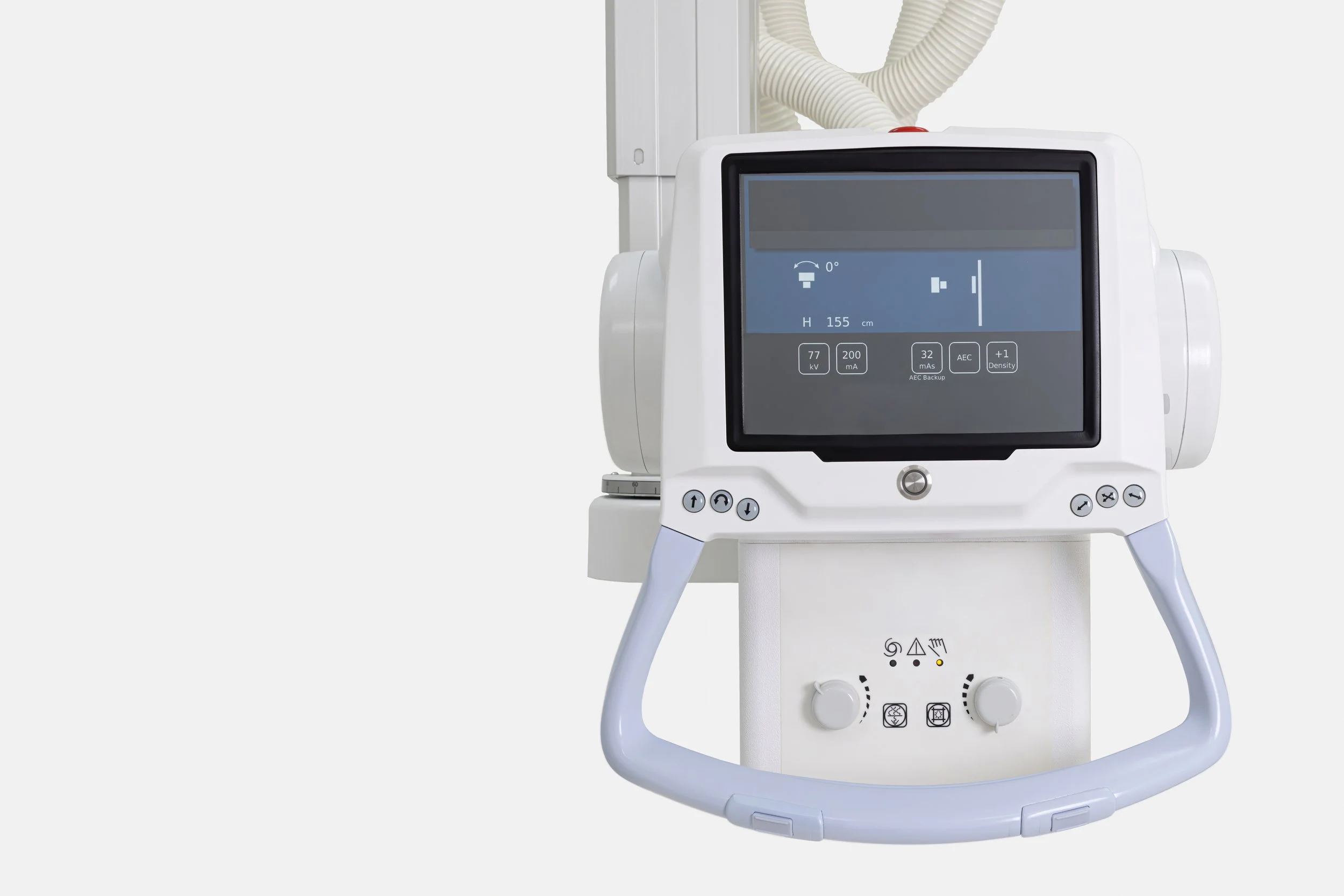Forget About Wegovy and Ozempic for Weight Loss; Here’s a Drug That is Twice as Powerful
Hardly a day goes by without weight loss drug news. Recently, Ozempic and Wegovy (brand names for the same drug semaglutide) have been popular with the Hollywood, Instagram, and Tik Tok crowds. Ozempic has FDA approval for Type II diabetes, and Wegovy is approved for weight loss without diabetes. Since one of the side effects is weight loss, off-label usage has surged to the point of drug shortages in some locations.
Both drugs are manufactured by the Denmark-based drug company Novo-Nordisk A/S. Ozempic costs about $900 monthly without insurance, and Wegovy $1350. Yes, they are the same drug. They must be given by injection, like insulin.
But Mounjaro (tirzeparte) has been approved for diabetes, pending approval for weight loss. How much better is it than semiglutide? The latter produced an average loss of 15% of body weight in obese patients. In comparison, tirzeparte produced an average loss of 22.5% of body weight. The difference is huge (pardon the pun). For the moment, it costs about $975 monthly, but Eli Lily won’t speculate what they will price it at for weight loss. But you can rest assured it will be significantly higher.
All of these drugs are not without significant side effects. Common ones are nausea, vomiting, low blood pressure, rapid heart rate, abdominal pain, belching, and flatulence. And those are the mild ones. Both manufacturers say these side effects are mild and often pass with chronic use. I wouldn’t bet on that.
Serious, although rarer, are thyroid cancer, kidney failure, gallstones, and passing out. Three questions are 1)How badly do you want to lose weight? 2) Can you afford them? and 3) Are you willing to risk the side effects?
I recall one patient asking her oncologist,” Does this medication have any side effects other than bankruptcy?”
Yet, the market for these drugs is enormous. “More than 40% of American adults, or about 100 million, meet the criteria for obesity of a body-mass index of 30 and above, according to the National Institute of Diabetes and Digestive and Kidney Diseases. More than 30 million Americans have Type 2 diabetes.”
The other downside is if these drugs are stopped, all of the weight is often regained. And there is some evidence that yo-yo dieting can lead to more adverse heart events than being obese and staying that way.
Another more significant question is why drug companies charge more for the same drug. The short answer is that they can. The demand for the holy grail in weight loss medicines is insatiable. People who can afford it and are vain enough will try anything to lose even 5% of their body weight. And many use it (as in Hollywood stars and social media influencers) who are not clinically obese but only mildly overweight.
Most “breakthrough” or “blockbuster” drugs follow a similar pattern. Their pre-release is full of hope, hype, and promises. The release coincides with greatly exaggerated television and media commercials showing beautiful people playing and smiling. The pharmaceutical reps also invade the doctors’ offices to push the drug. Next comes months, or sometimes one to two years, of bad news, like less-than-promised results or side effects. Only after a few years post-release do we finally learn about the true risk/benefit of the drug and who should take it.
Undoubtedly, the US and Western societies have an obesity epidemic. However, only time will tell what role these drugs have, if any, in helping to curb it.
I am a retired MD passionate about writing, culture, health, fishing, sports, politics, and food. Get an email whenever I publish by clicking this link:https://davidmokotoff.medium.com/subscribe
I will never spam you or give out your address.
Nurse Week
Nurses are the backbone of the healthcare industry. They are responsible for providing high-quality patient care, ensuring patient safety, and managing complex medical procedures. Every year, National Nurse Week is celebrated from May 6th to May 12th to recognize and honor the contributions of nurses in the healthcare industry.
Here are some reasons why Nurse Week is essential in hospitals:
Recognition of hard work
Nurses work tirelessly to provide excellent patient care and deserve recognition for their efforts. Nurse Week provides an opportunity to acknowledge their hard work, dedication, and commitment to the healthcare industry. This recognition helps boost the morale of nurses, increasing their job satisfaction and motivation to continue providing high-quality patient care.
Increased awareness
Nurse Week provides an opportunity to increase public awareness of the vital role that nurses play in the healthcare industry. It highlights the importance of the nursing profession and its contribution to patient care. Increased awareness can help attract more people to the nursing profession, leading to a more robust healthcare workforce.
Professional development
Nurse Week provides an opportunity for nurses to participate in educational seminars, workshops, and training programs, helping them improve their skills and knowledge. These professional development opportunities can lead to improved patient outcomes and higher job satisfaction for nurses.
Improved patient care
Celebrating Nurse Week can lead to improved patient care. When nurses feel appreciated and recognized, they are more likely to provide excellent patient care. This can lead to better patient outcomes and a higher level of patient satisfaction.
Team building
Nurse Week celebrations can help foster team building and collaboration among healthcare professionals. It provides an opportunity for nurses to interact with other healthcare professionals, such as doctors, technicians, and administrative staff, leading to improved communication and collaboration in patient care.
In conclusion, Nurse Week is an essential celebration in hospitals. It provides an opportunity to recognize and honor the contributions of nurses in the healthcare industry, increase public awareness of the nursing profession, and provide professional development opportunities for nurses. Celebrating Nurse Week can lead to improved patient care, team building, and higher job satisfaction for nurses. As a vital part of the healthcare industry, nurses deserve recognition for their hard work, dedication, and commitment to providing high-quality patient care.
Altrix Precision Temperature Management Equipment
Altrix Precision Temperature Management Equipment is an essential medical device used in hospitals to maintain the patient's body temperature during surgical procedures. The Altrix system includes disposable temperature probes, reusable warming blankets, and a control unit that monitors and regulates the patient's temperature. This equipment provides precise temperature control, preventing hypothermia or hyperthermia, which can lead to complications during and after surgery.
Here are some reasons why Altrix Precision Temperature Management Equipment is essential in hospitals:
Enhanced patient safety and comfort
The use of Altrix Precision Temperature Management Equipment ensures that the patient's body temperature remains within a safe range during surgery. Maintaining proper body temperature can reduce the risk of complications, such as infection, bleeding, and longer recovery times. Additionally, keeping the patient's body temperature within a safe range can help reduce post-operative pain, improve wound healing, and promote overall patient comfort.
Increased efficiency in surgery
Maintaining the patient's body temperature during surgery using Altrix Precision Temperature Management Equipment can help increase the efficiency of the surgical procedure. Proper temperature management can reduce the risk of complications, resulting in shorter surgical times and quicker recovery periods.
Improved patient outcomes
The use of Altrix Precision Temperature Management Equipment can lead to improved patient outcomes, with reduced risk of complications, faster recovery times, and decreased hospital stays. Proper temperature management can also reduce the risk of post-operative infections, which can be costly and increase the length of hospital stays.
Cost-effective
Using Altrix Precision Temperature Management Equipment is cost-effective for hospitals, as it can reduce the need for additional medical interventions and longer hospital stays. Proper temperature management can help reduce the risk of post-operative complications, leading to fewer follow-up appointments, lower readmission rates, and overall reduced healthcare costs.
High-quality standards
Altrix Precision Temperature Management Equipment meets high-quality standards and is FDA approved, ensuring that hospitals have access to safe and reliable equipment for patient care. This equipment is designed to meet the specific temperature management needs of patients during surgical procedures, providing healthcare professionals with a tool that they can rely on.
In conclusion, Altrix Precision Temperature Management Equipment is an essential medical device used in hospitals to maintain the patient's body temperature during surgical procedures. Proper temperature management using Altrix Precision Temperature Management Equipment can lead to improved patient safety, comfort, and outcomes, as well as increased efficiency in surgery and cost-effectiveness for hospitals. Healthcare professionals can rely on this FDA-approved equipment to meet the specific temperature management needs of their patients during surgical procedures.
Hospital Parking
Hospital parking is an essential aspect of healthcare facilities that is often overlooked. Hospital parking is critical because it plays a crucial role in patient and visitor satisfaction, patient outcomes, and hospital revenue. Here are some reasons why hospital parking is important:
Convenient access for patients and visitors
Hospital parking provides convenient access to healthcare facilities for patients and visitors. Patients and their families often arrive at the hospital in stressful and emotional situations. A well-planned and easy-to-navigate parking system can reduce the stress and anxiety associated with finding a parking spot, allowing patients and their families to focus on their health and well-being.
Enhanced patient outcomes
Access to convenient parking has been shown to improve patient outcomes. Patients who are able to park closer to the hospital have reduced walking distance, which can be particularly beneficial for patients with mobility issues or those undergoing treatments that cause fatigue.
Revenue generation for hospitals
Hospital parking is a significant source of revenue for healthcare facilities. Parking fees can help hospitals offset operating costs, support infrastructure upgrades, and contribute to the development of new programs and services. In some cases, parking fees may be used to provide financial assistance to patients who cannot afford their medical bills.
Improved safety and security
Hospital parking is essential for the safety and security of patients, visitors, and hospital staff. A well-lit and well-monitored parking lot can deter criminal activity, making patients and visitors feel safer when entering and exiting the hospital.
Better hospital ratings and reviews
Patient satisfaction is a critical factor in hospital ratings and reviews. A poorly designed and managed parking system can lead to negative patient experiences and poor reviews. In contrast, a well-organized parking system can contribute to positive patient experiences, resulting in better ratings and reviews for the hospital.
In conclusion, hospital parking is a vital aspect of healthcare facilities that should not be overlooked. Access to convenient parking can improve patient outcomes, contribute to hospital revenue, enhance safety and security, and improve patient satisfaction. Hospital administrators should prioritize the design and management of parking systems to ensure that patients, visitors, and hospital staff have a positive experience at the hospital.
Lung Cancer Department
Lung cancer is a significant health concern worldwide, with over 2 million cases diagnosed each year. In the United States alone, lung cancer is the leading cause of cancer-related deaths. Given its high prevalence, it is critical to establish dedicated lung cancer centers within hospitals to provide specialized care to patients.
Here are some reasons why building a lung cancer center in a hospital is important:
Multidisciplinary approach to care
A lung cancer center provides a multidisciplinary approach to patient care, with a team of specialists from various medical fields working together to provide comprehensive treatment plans. This approach ensures that patients receive the best possible care, with all aspects of their treatment considered and coordinated.
Streamlined diagnostic process
A lung cancer center offers a streamlined diagnostic process, with access to the latest imaging and diagnostic tools to aid in early detection and diagnosis. Early detection is crucial in improving patient outcomes, and a lung cancer center provides the necessary resources for early detection and timely treatment.
Access to clinical trials
A lung cancer center provides access to clinical trials, which offer patients access to cutting-edge treatments and therapies that may not be available elsewhere. Patients participating in clinical trials receive close monitoring and care from the clinical trial team, ensuring the highest level of care.
Patient education and support
A lung cancer center provides patient education and support, with resources and information available to patients and their families to help them understand their diagnosis, treatment options, and support services available to them. Support groups, counseling services, and other resources are available to help patients and their families cope with the emotional and psychological aspects of lung cancer.
Specialized treatment options
A lung cancer center offers specialized treatment options, with access to the latest surgical techniques, radiation therapy, and chemotherapy. Patients receive personalized treatment plans that consider their individual needs, ensuring the best possible outcome.
Research and innovation
A lung cancer center provides an environment for research and innovation, with dedicated researchers and clinicians working to advance our understanding of lung cancer and develop new treatments and therapies.
In conclusion, building a lung cancer center in a hospital is crucial to providing specialized care to patients with lung cancer. With its multidisciplinary approach to care, streamlined diagnostic process, access to clinical trials, patient education and support, specialized treatment options, and research and innovation, a lung cancer center provides patients with the best possible care and the greatest chance for a positive outcome.
Endobronchial ultrasound (EBUS)
Endobronchial ultrasound (EBUS) is a minimally invasive diagnostic tool that is rapidly gaining popularity in the medical world. EBUS involves the use of a flexible bronchoscope with an attached ultrasound probe that allows doctors to visualize and biopsy the tissues surrounding the bronchial tree.
EBUS has proven to be a valuable tool for the diagnosis and staging of lung cancer, as well as the evaluation of other diseases affecting the airways and lungs. Here are some reasons why EBUS in hospitals is so important:
Accuracy in diagnosis and staging of lung cancer
Lung cancer is the leading cause of cancer deaths worldwide, and early detection is crucial for successful treatment outcomes. EBUS allows doctors to obtain tissue samples from lymph nodes and other structures surrounding the lungs with high accuracy, reducing the need for more invasive procedures like mediastinoscopy.
EBUS also provides accurate staging of lung cancer, allowing doctors to determine the extent of the disease and develop an appropriate treatment plan.
Improved patient outcomes
EBUS can help reduce the number of unnecessary diagnostic procedures and surgeries, minimizing patient discomfort and risks associated with these procedures. Additionally, by providing accurate staging information, EBUS can help doctors choose the most appropriate treatment option for each patient, leading to better outcomes.
Cost-effectiveness
In comparison to other diagnostic procedures, such as mediastinoscopy, EBUS is a cost-effective option. EBUS can be performed on an outpatient basis, which means that patients do not need to be hospitalized, reducing overall costs.
Minimally invasive
EBUS is a minimally invasive procedure that does not require general anesthesia, reducing patient discomfort and risks associated with general anesthesia. The procedure is usually performed under local anesthesia and sedation, allowing patients to recover quickly and return to their daily activities.
Versatility
EBUS can be used for the diagnosis and staging of lung cancer, as well as the evaluation of other diseases affecting the airways and lungs, such as sarcoidosis, tuberculosis, and lymphoma.
In conclusion, EBUS is a valuable tool for the diagnosis and staging of lung cancer, as well as the evaluation of other diseases affecting the airways and lungs. With its accuracy, improved patient outcomes, cost-effectiveness, minimally invasive nature, and versatility, EBUS has become an important tool in hospitals for the evaluation of lung and airway diseases.
Reflections on 33 Years of Practice at Northside Hospital
MReflections on 33 Years of Practice at Northside Hospital and Five Keys To An Excellent Practice
Dr. Mokotoff
Over three decades of medical practice saw huge changes, but some tenets should remain the same.
I moved to St. Petersburg, Florida, in 1982 to begin a cardiology practice. Dr. David Kohl joined me in 1985, and we named it Bay Area Heart Center. Forty-one years later, the practice has evolved to 13 doctors, two ARNPs, 4 locations, and is now Bay Area Heart Cardiac, Vascular, and Vein Center.
As a physician, you may be acutely aware of how much medicine has evolved. But you may not appreciate what has not, and should never, change if you want to offer superior and excellent patient care. Regardless of your specialty, some guideposts should always be remembered.
Doctors Day
About Doctors Day
By Dr. A Tyagi
As a doctor, I feel privileged to be able to serve my patients and their families every day. The profession of medicine is a challenging one, but it is also incredibly rewarding. It is an honor to be able to use my skills and knowledge to help others when they are at their most vulnerable. Doctors' Day is a special day that provides an opportunity to celebrate our profession and the important work that we do. It is a time to reflect on the impact that we have on our patients' lives, and to remember the sacrifices that we make to provide the best possible care. As we mark this day, I am grateful for the support of my colleagues, my patients, and their families, and I am proud to be a doctor.
Trust in the workplace
In the hospital workplace, trust is essential.
In the hospital workplace, trust is essential. It is a fundamental element that affects the quality of patient care and overall performance of the hospital staff. Trust in the hospital workplace is built upon the foundation of honesty, communication, respect, and teamwork. When trust is present in the hospital workplace, it leads to better collaboration, increased productivity, and improved patient outcomes.
Honesty is the first key element of trust in the hospital workplace. This means that all members of the hospital staff must be transparent and truthful in their interactions with each other. Honesty builds trust by creating an environment of openness and accountability. When hospital staff members are honest with each other, they build a foundation of trust that allows them to work collaboratively and to rely on each other for support.
Communication is the second key element of trust in the hospital workplace. Effective communication is essential for building trust between hospital staff members. Communication involves actively listening, asking questions, and providing clear and concise information. Hospital staff members who communicate well are more likely to work collaboratively, to understand each other's needs, and to feel supported and valued.
Respect is the third key element of trust in the hospital workplace. Respecting each other's opinions, feelings, and expertise is critical to building trust. When hospital staff members respect each other, they are more likely to work together effectively, to support each other, and to resolve conflicts in a constructive manner.
Teamwork is the final key element of trust in the hospital workplace. Hospital staff members must work together as a team to achieve common goals. This requires a shared vision, clear roles and responsibilities, and a commitment to collaboration. When hospital staff members work together as a team, they build trust by supporting each other, sharing ideas and expertise, and holding each other accountable.
Trust in the hospital workplace has many benefits. When hospital staff members trust each other, they are more likely to communicate effectively, work collaboratively, and support each other. This leads to increased productivity, better patient outcomes, and a positive work environment. Trust also helps to reduce stress and improve job satisfaction among hospital staff members.
In conclusion, trust is essential in the hospital workplace. It is built upon the foundation of honesty, communication, respect, and teamwork. When hospital staff members trust each other, they are more likely to work collaboratively, communicate effectively, and achieve common goals. Trust leads to increased productivity, improved patient outcomes, and a positive work environment. Hospitals must prioritize building trust among their staff members to ensure the delivery of high-quality patient care.
A Note from Northside Med Staff President
Dear colleagues,
I am honored to serve as the President of the Medical Staff at Northside Hospital. Together we make up a diverse group of individuals who have dedicated our lives to the health and well being of our patients. For the first time I would like to introduce the first ever Monthly NSH Medical Staff Newsletter. I am proud to lead such a talented and dedicated medical staff and would like to take a moment to discuss a few ways we can improve our collaboration and work environment over the coming years.
Rakesh Mittal, MD, PhD
President/Chief of Staff


















